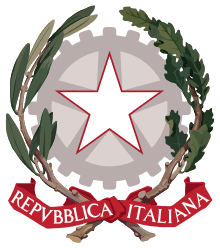Umberto Veronesi
| Umberto Veronesi | |
|---|---|
.jpg) Umberto Veronesi in 2011 | |
| Minister of Health | |
|
In office 25 April 2000 – 11 June 2001 | |
| Prime Minister | Giuliano Amato |
| Preceded by | Rosy Bindi |
| Succeeded by | Girolamo Sirchia |
| Personal details | |
| Born |
28 November 1925 Milan, Italy |
| Died |
8 November 2016 (aged 90) Milan, Italy |
| Nationality | Italian |
| Political party |
Democratic Party (2007–16) |
| Other political affiliations |
Italian Socialist Party (1980s–1994) Independent (1994–2007) |
| Profession | Oncologist |
Umberto Veronesi M.D. Knight Grand Cross OMRI (Italian pronunciation: [umˈbɛrto veroˈneːzi; -ˈneːsi]; 28 November 1925 – 8 November 2016) was an Italian oncologist and politician, internationally known for his contributions on prevention and treatment of breast cancer throughout a career spanning over fifty years.
Early life and education
Veronesi was born in Milan. He obtained his degree in medicine from the University of Milan in 1952, and dedicated his professional life to the study and treatment of cancer.
Scientific career
After spending brief periods in England and France, he joined the Italian Cancer Institute in Milan as a volunteer. Veronesi was the founder of breast-conserving surgery in breast cancer treatment with the invention of the technique of quadrantectomy which challenged the dominant paradigm among surgeons that cancer could only be treated with aggressive surgery. He supported and promoted scientific research aimed at improving conservative surgical techniques, including sentinel lymph node biopsy, which resulted in axillary dissection in breast cancer with clinically negative lymph nodes no longer being performed. He also contributed to breast cancer prevention conducting studies on tamoxifen and retinoids and verifying their capabilities to prevent the formation of carcinoma. He was an activist in anti-tobacco campaigns. In 1994 he founded the European Institute of Oncology, which he directed until his death. He was appointed President of the Scientific Committee of the Italy-USA Foundation in 2010. In 2009, through his foundation (Fondazione Veronesi), he started the project "Science for Peace", in order to promote peaceful relations through scientific development.[1]
Political career
- 1993 member of the national Commission against cancer.
- 1998 member of the national Commission for the evaluation of "Di Bella therapy" against cancer.
- 2000-2001 Minister of Health under the Amato II Cabinet.
- On 25 April 2000 he was appointed to the Amato II Cabinet as the minister of health[2] and was in office until 11 June 2001. He was instrumental in the promotion of the anti-smoking in public places act.
- 2008 Main candidate in Milan of the Democrate Party (Veltroni) to the Italian Senate.
- 2010-2011 Chairman of Italy's Nuclear Safety Agency.[3][4][5]
Ethical views
Over the years, Veronesi publicly expressed his views on several ethical issues in interviews, televised debates and his books.
Veronesi identified himself as an atheist, not believing in any deity and in any form of afterlife. He claimed that human beings should not consider death a terrifying moment, but rather accept it as a biological necessity.[6]
He supported active euthanasia, affirming the right of any individual to end their life if it became unbearable due to suffering or loss of dignity. He advocated the necessity to regulate euthanasia at a national level, citing Dutch legislation as a good starting point;[7] he was promoting a campaign for the introduction of living will as a legally binding agreement between the doctor and the incapacitated patient.[8]
Veronesi supported genetically modified organisms as a way to produce food with higher nutritional capabilities and deprived of potentially carcinogenic substances. He criticized the current opposition to GMOs as being due to lack of scientific knowledge.[9]
Veronesi was an ethical vegetarian.[10]
See also
References
- ↑ http://www.fondazioneveronesi.it/progetti-e-conferenze/science-peace/
- ↑ "Giuliano Amato Italy's new Prime Minister". Cosmopolis. 6. May 2000. Retrieved 6 June 2013.
- ↑ http://www.businessweek.com/news/2010-10-27/italy-nuclear-agency-heads-to-be-named-oct-29-messaggero-says.html
- ↑ Migliaccio, Alessandra (12 November 2010). "Doctor Heading Italy's New Atomic Agency Pledges to Sell Nuclear Revival". Bloomberg.
- ↑ Rendina, Federico (4 September 2011). "Agenzia nucleare, Veronesi lascia". Il Sole 24 ORE (in Italian).
- ↑ "Io voglio morire così". OK! La salute prima di tutto. February 2006. Retrieved 2007-02-05.
- ↑ "Veronesi difende l'eutanasia "Morire è un diritto fondamentale"". La Repubblica (in Italian). 18 November 2005. Retrieved 5 February 2007.
- ↑ Pappagallo, Mario (1 March 2006). "Veronesi: fate testamento biologico". Corriere Della Sera. Retrieved 5 February 2007.
- ↑ "Intervista all'ex Ministro della Salute Veronesi". La Stampa (in Italian). 28 October 2004. Retrieved 5 February 2007.
- ↑ "Intervista a Umberto Veronesi". Oggi (in Italian). 23 October 2002. Retrieved 5 February 2007.
Sources
- "Official Biography". European Institute of Oncology. Archived from the original on 25 February 2007. Retrieved 5 February 2007.
External links
| Wikimedia Commons has media related to Umberto Veronesi. |
- European Institute of Oncology Website (Italian) (English)
- ecancermedicalscience (Open Access journal of the European Institute of Oncology) (English)
- Montanari disputes Veronesi on YouTube (Italian)
- Fondazione Umberto Veronesi (Italian) (English)
| Political offices | ||
|---|---|---|
| Preceded by Rosy Bindi |
Italian Minister of Health 2000–2001 |
Succeeded by Girolamo Sirchia |
